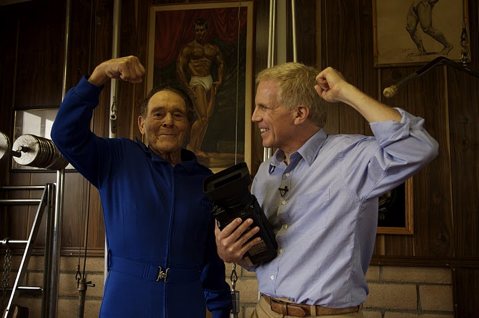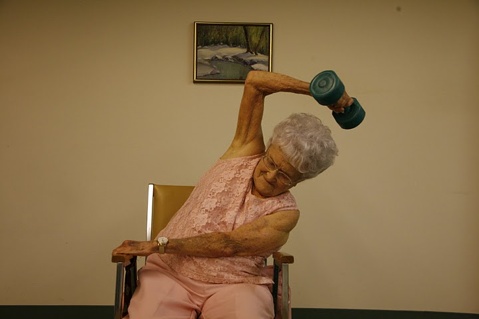How to Live Forever
Documentary Filmmaker Mark Wexler Searches for Ways to Extend His Life
Buster Martin wants to run the Edinburgh Marathon. And why shouldn’t he? He’s already run the London Marathon. Well you could say, “But he’s a chain smoker and drinks a little too much.” Well, okay, but that hasn’t seemed to stop him yet. Oh, and one other thing, he’s 101 years old.
Martin is just one of the characters that Mark Wexler has come across on his journeys around the world, searching for the answer to one question, “How can I extend my life?” His documentary, How To Live Forever, attempts to answer the question.
“The death of my mother and the arrival of my AARP card got me started on thinking about my life,” Wexler said, describing his reason for making the documentary. “You start to think about reevaluating your life, extending your life, and packing in more.” The documentary takes the audience on Wexler’s own search to find some sort of Fountain of Youth. And along the way, Wexler reveals that there may be more to this question than nutrition science can attempt to answer.

Wexler stops in with Jack LaLanne, fitness guru, who at 94 during making of film still works out for two hours each day. He offers Wexler advice on staying in shape and enjoying the current moment. Wexler visits the Senior Miss America Pageant and finds many senior women who look for self-esteem and friendship as a greater reward than winning the crown.
The journey also takes Wexler to a cryogenics lab where one can pay to have his or her body frozen until the technology becomes available to wake him or her up and rejoin humanity. As Wexler visits a funeral directors convention in Las Vegas, Aubrey de Grey (a gerontologist and theoretician on regenerative medicine), and the creators of elder porn in Japan, he begins to question his goal.
“I began to think that worrying about my health may contribute to killing me sooner,” Wexler said. “Living your life is more important than focusing on the end of your life. You can have French fries occasionally, but take pleasure in it.”

Wexler found that the attitude one holds toward life and eventual death is of equal importance to one’s own health and genetic makeup. “We used to think that a long life came from 75 percent genes and 25 percent lifestyle choices,” Wexler said. “Now it’s thought that longevity is determined by 75 percent lifestyle and 25 percent by your genetic make up.”
The film follows Wexler as he interviews practitioners of laughter yoga, a type of yoga that stimulates laughter and is believed to help heal the body by allowing more oxygen to reach blood cells. Wexler also tries a restrictive calorie diet, one that suggests that the less food you eat, the longer you live.
Wexler finds positive attitudes toward life when he interviews people like Buster Martin and other seniors over 100 years (the oldest at the time of filming was 115 years old). “I feel fortunate to have spent time with centenarians [people 100 years or older],” Wexler said. “They are all very peaceful, humorous, and fun to be around.”
“Many people ask me how long I want to live,” Wexler said. “I want to live to be old enough to remember how old I am.”
How to Live Forever will premiere at the Santa Barbara International Film Festival this Sunday, February 7, at 4:30 p.m. at the Metro 4 Theatre and will air again at the Metro 4 on Tuesday, February 9. To see clips and to get more info about the movie, check out liveforevermovie.com.



